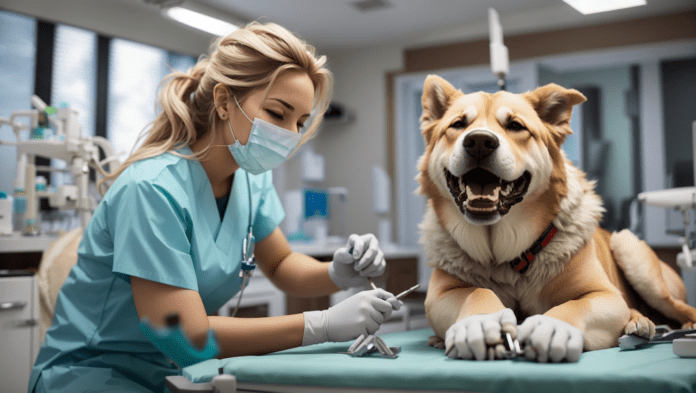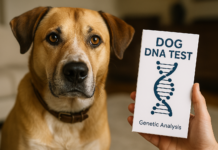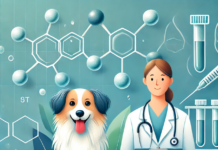Last Updated on August 5, 2023 by Dogs Vets
Unmasking Common Misconceptions for a Healthier Dog Smile
Introduction
When it comes to our furry companions, their health and well-being are of utmost importance.
Just like humans, dogs require proper dental care to maintain a happy and healthy life. However, the world of dog dental health is riddled with myths that can sometimes lead us astray.
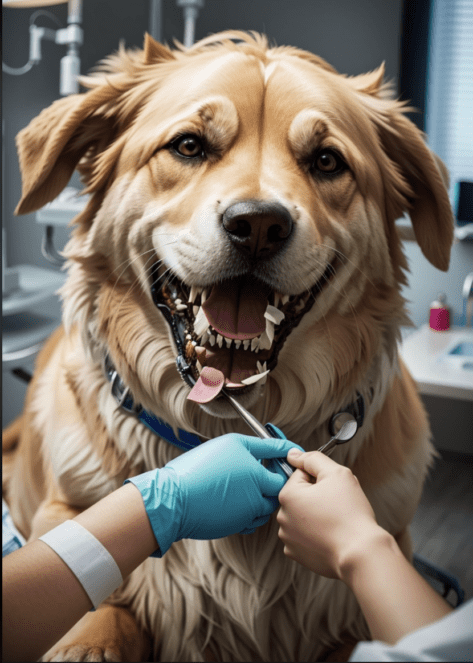
As a dedicated veterinarian, I’ve encountered numerous misconceptions about dog teeth over the years. It’s time to set the record straight and debunk 7 prevalent dog teeth myths that you need to stop believing.
Dogs Don’t Need Dental Care
Dogs may not brush their teeth like we do, but that doesn’t mean they’re exempt from dental care. Neglecting their oral health can lead to a myriad of problems, including gum disease, tooth decay, and even more serious health issues.
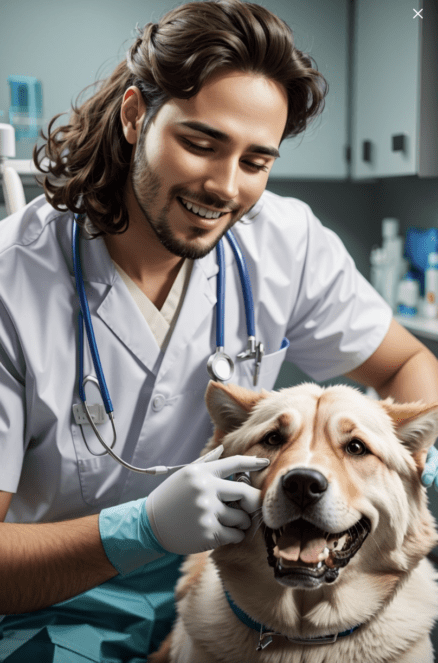
Regular dental check-ups are essential for spotting potential problems early and preventing discomfort for your furry friend.
Myth 2: Dry Food Keeps Teeth Clean
While crunching on dry kibble might help remove some plaque, it’s not a foolproof solution. Proper dental care goes beyond diet alone.
Consider incorporating dental treats, toys, and even regular brushing to maintain your dog’s oral hygiene effectively.
Myth 3: Bones Are Good for Teeth
Contrary to popular belief, not all bones are created equal. Cooked bones can splinter and cause serious harm to your dog’s teeth and digestive tract.
Instead, opt for safer alternatives like dental chews specifically designed to promote dental health.
Myth 4: Dogs Will Signal When They’re in Pain
Dogs are known for their resilience, which can make it challenging to detect dental pain.
While some dogs may show obvious signs of discomfort, such as pawing at their mouth or decreased appetite, others may suffer silently. Regular observation and professional check-ups are crucial.
Myth 5: Brushing Dog’s Teeth is Impossible
Brushing your dog’s teeth may seem like an uphill battle, but it’s far from impossible.
Start slowly by introducing them to the process and gradually building their tolerance. With patience and positive reinforcement, you can establish a teeth-brushing routine that benefits both you and your furry friend.
Myth 6: Natural Remedies are Always Safe
Natural doesn’t always mean safe, especially when it comes to your dog’s oral health. While some natural remedies might have beneficial effects, it’s essential to consult your veterinarian before trying anything new.
Coconut oil or certain herbs may have potential benefits, but their usage should be guided by a professional.
Myth 7: Dental Health is Purely Genetic
While genetics play a role in your dog’s dental health, it’s not the sole determining factor. Environmental factors, diet, and dental care routines contribute significantly.
Even breeds predisposed to dental issues can benefit from proper care, ultimately leading to improved oral health.
Conclusion
As responsible pet owners, it’s our duty to separate fact from fiction and provide our beloved dogs with the best care possible. By dispelling these common dog teeth myths, we pave the way for healthier, happier smiles.
Remember, regular veterinary check-ups, a balanced diet, and consistent dental care routines are the keys to ensuring your furry friend’s dental health for years to come.
FAQs About Dog Dental Health
Q: How often should I brush my dog’s teeth?
A: Ideally, you should aim to brush your dog’s teeth at least 2-3 times a week.
Q: Are dental treats a good alternative to brushing?
A: Dental treats can complement brushing, but they shouldn’t replace it entirely. Regular brushing is crucial for thorough dental care.
Q: Can I use human toothpaste for my dog?
A: No, human toothpaste can be harmful to dogs. Use toothpaste specifically formulated for dogs.
Q: My dog’s breath smells bad. Is it normal?
A: Persistent bad breath could indicate dental issues. Consult your vet for a proper assessment.
Q: Are there any breeds more prone to dental problems?
A: Some small breeds, such as Chihuahuas and Yorkshire Terriers, are more susceptible to dental issues.
Q: How can I make teeth-brushing more enjoyable for my dog?
A: Gradually introduce the process, use dog-friendly toothpaste, and offer rewards for cooperation.
Q: Is professional dental cleaning necessary for dogs?
A: Yes, professional dental cleaning performed by a veterinarian is essential for maintaining optimal oral health.
Source References and Links:
- American Veterinary Dental College. “Periodontal Disease in Dogs.” Link
- American Kennel Club. “Dog Teeth Cleaning: The Ultimate Guide.” Link
- PetMD. “The Importance of Dental Care for Dogs.” Link
- American Animal Hospital Association. “Dental Care Guidelines for Dogs and Cats.” Link
- Veterinary Oral Health Council. “VOHC Accepted Products.” Link
Remember, a bright and healthy smile can truly brighten up your dog’s life. Embrace proper dental care practices and watch your furry friend thrive!
Facts Check:
We hope you enjoyed this article… What are your thoughts?
Рleаse let us knоw yоur thоughts in the соmments seсtiоn. Feel free to share with us in the comments section below.
